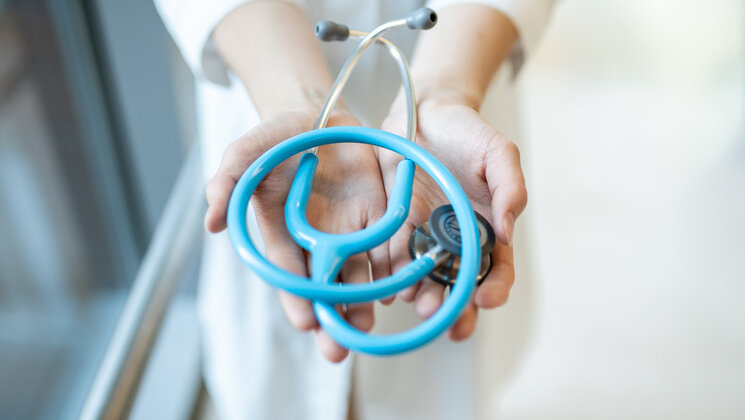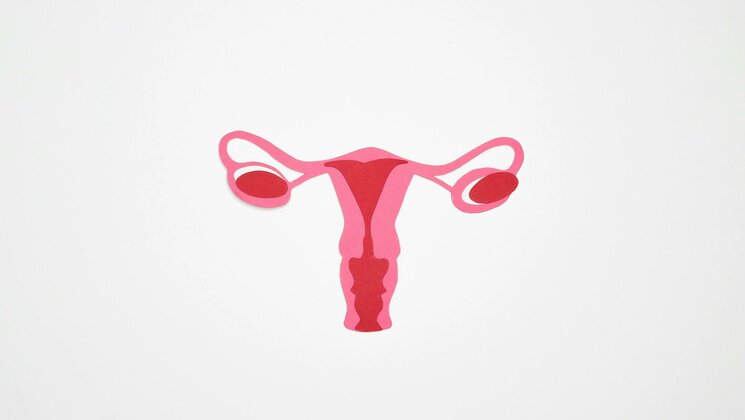-
Faculty of Arts and HumanitiesDean's Office, Faculty of Arts and HumanitiesJakobi 2, r 116-121 51005 Tartu linn, Tartu linn, Tartumaa EST0Institute of History and ArchaeologyJakobi 2 51005 Tartu linn, Tartu linn, Tartumaa EST0Institute of Estonian and General LinguisticsJakobi 2, IV korrus 51005 Tartu linn, Tartu linn, Tartumaa EST0Institute of Philosophy and SemioticsJakobi 2, III korrus, ruumid 302-337 51005 Tartu linn, Tartu linn, Tartumaa EST0Institute of Cultural ResearchÜlikooli 16 51003 Tartu linn, Tartu linn, Tartumaa EST0Institute of Foreign Languages and CulturesLossi 3 51003 Tartu linn, Tartu linn, Tartumaa EST0School of Theology and Religious StudiesÜlikooli 18 50090 Tartu linn, Tartu linn, Tartumaa EST0Viljandi Culture AcademyPosti 1 71004 Viljandi linn, Viljandimaa EST0Professors emeriti, Faculty of Arts and Humanities0Associate Professors emeriti, Faculty of Arts and Humanities0Faculty of Social SciencesDean's Office, Faculty of Social SciencesLossi 36 51003 Tartu linn, Tartu linn, Tartumaa EST0Institute of EducationJakobi 5 51005 Tartu linn, Tartu linn, Tartumaa EST0Johan Skytte Institute of Political StudiesLossi 36, ruum 301 51003 Tartu linn, Tartu linn, Tartumaa EST0School of Economics and Business AdministrationNarva mnt 18 51009 Tartu linn, Tartu linn, Tartumaa EST0Institute of PsychologyNäituse 2 50409 Tartu linn, Tartu linn, Tartumaa EST0School of LawNäituse 20 - 324 50409 Tartu linn, Tartu linn, Tartumaa EST0Institute of Social StudiesLossi 36 51003 Tartu linn, Tartu linn, Tartumaa EST0Narva CollegeRaekoja plats 2 20307 Narva linn, Ida-Virumaa EST0Pärnu CollegeRingi 35 80012 Pärnu linn, Pärnu linn, Pärnumaa EST0Professors emeriti, Faculty of Social Sciences0Associate Professors emeriti, Faculty of Social Sciences0Faculty of MedicineDean's Office, Faculty of MedicineRavila 19 50411 Tartu linn, Tartu linn, Tartumaa ESTInstitute of Biomedicine and Translational MedicineBiomeedikum, Ravila 19 50411 Tartu linn, Tartu linn, Tartumaa ESTInstitute of PharmacyNooruse 1 50411 Tartu linn, Tartu linn, Tartumaa ESTInstitute of DentistryL. Puusepa 1a 50406 Tartu linn, Tartu linn, Tartumaa ESTInstitute of Clinical MedicineL. Puusepa 8 50406 Tartu linn, Tartu linn, Tartumaa ESTInstitute of Family Medicine and Public HealthRavila 19 50411 Tartu linn, Tartu linn, Tartumaa ESTInstitute of Sport Sciences and PhysiotherapyUjula 4 51008 Tartu linn, Tartu linn, Tartumaa ESTProfessors emeriti, Faculty of Medicine0Associate Professors emeriti, Faculty of Medicine0Faculty of Science and TechnologyDean's Office, Faculty of Science and TechnologyVanemuise 46 - 208 51003 Tartu linn, Tartu linn, Tartumaa ESTInstitute of Computer ScienceNarva mnt 18 51009 Tartu linn, Tartu linn, Tartumaa ESTInstitute of GenomicsRiia 23b/2 51010 Tartu linn, Tartu linn, Tartumaa ESTEstonian Marine Institute0Institute of PhysicsInstitute of ChemistryRavila 14a 50411 Tartu linn, Tartu linn, Tartumaa EST0Institute of Mathematics and StatisticsNarva mnt 18 51009 Tartu linn, Tartu linn, Tartumaa EST0Institute of Molecular and Cell BiologyRiia 23, 23b - 134 51010 Tartu linn, Tartu linn, Tartumaa ESTTartu ObservatoryObservatooriumi 1 61602 Tõravere alevik, Nõo vald, Tartumaa EST0Institute of TechnologyNooruse 1 50411 Tartu linn, Tartu linn, Tartumaa ESTInstitute of Ecology and Earth SciencesJ. Liivi tn 2 50409 Tartu linn, Tartu linn, Tartumaa ESTProfessors emeriti, Faculty of Science and Technology0Associate Professors emeriti, Faculty of Science and Technology0Institute of BioengineeringArea of Academic SecretaryHuman Resources OfficeUppsala 6, Lossi 36 51003 Tartu linn, Tartu linn, Tartumaa EST0Area of Head of FinanceFinance Office0Area of Director of AdministrationInformation Technology Office0Administrative OfficeÜlikooli 17 (III korrus) 51005 Tartu linn, Tartu linn, Tartumaa EST0Estates Office0Marketing and Communication OfficeÜlikooli 18, ruumid 102, 104, 209, 210 50090 Tartu linn, Tartu linn, Tartumaa EST0Area of Vice Rector for DevelopmentCentre for Entrepreneurship and InnovationNarva mnt 18 51009 Tartu linn, Tartu linn, Tartumaa EST0University of Tartu Natural History Museum and Botanical GardenVanemuise 46 51003 Tartu linn, Tartu linn, Tartumaa EST0International Cooperation and Protocol Office0University of Tartu MuseumLossi 25 51003 Tartu linn, Tartu linn, Tartumaa EST0Area of RectorRector's Strategy OfficeInternal Audit OfficeArea of Vice Rector for Academic AffairsOffice of Academic AffairsUniversity of Tartu Youth AcademyUppsala 10 51003 Tartu linn, Tartu linn, Tartumaa EST0Student Union OfficeÜlikooli 18b 51005 Tartu linn, Tartu linn, Tartumaa EST0Centre for Learning and TeachingArea of Vice Rector for ResearchUniversity of Tartu LibraryW. Struve 1 50091 Tartu linn, Tartu linn, Tartumaa EST0Grant Office
Research centres that have received Estonia's largest research funding are starting work

On Monday, 11 September, at 13:00, the opening event of two centres of excellence – for digital bioengineering and for personalised medicine – will take place in the University of Tartu assembly hall. At the event, researchers from the University of Tartu and international partner institutions will present the future plans of the centres. Expectations for the projects will be outlined by Minister of Education and Research Kristina Kallas and representatives of the European Commission, including Signe Ratso, Deputy Director-General for Research and Innovation. All university members are welcome to the event. Registration is open until 6 September.
The centre for digitalised bioengineering being developed in the project DigiBio brings together bioengineering, IT, big data analysis and machine learning methods. The centre's partners are Tallinn University of Technology and the Novo Nordisk Foundation Center for Biosustainability of the Technical University of Denmark. At the opening event, Mart Loog, leader of the DigiBio project and Professor of Molecular Systems Biology at the University of Tartu, will introduce the centre's objectives for the next six years. Professor Lars Nielsen, representing the Danish partners, will talk in more detail about the opportunities for the digitalisation of bioengineering and the application of artificial intelligence in the research of the field. According to Loog, the Danes are the world leaders in this field, so the centre hopes to draw on their experience to make a qualitative leap in both research and the biotech industry.
Professor Mait Metspalu, Director of the University of Tartu Institute of Genomics, is leading the consortium developing the personalised medicine research centre as part of the TeamPerMed project. According to Metspalu, the centre will enable closer collaboration between different scientific disciplines, from clinical medicine and public health to social and data sciences, and to study all stages of implementing personalised medicine. The consortium's research includes the development of new scientific methods and data tools, as well as clinical trials to analyse and validate the results. Also, the impact of personalised medicine services on society, the economy and public health will be assessed. The project partners are Tartu University Hospital and experts from Europe's leading personalised medicine centres at the University of Helsinki, Erasmus University Rotterdam and its medical centre. Among others, Samuli Ripatti, Director of the Institute for Molecular Medicine Finland, will speak at the opening event, sharing experiences from Finland on the clinical testing and application of polygenic risk scores for more accurate disease prevention and diagnosis.
The day will conclude with a discussion on the role of the Widening actions of the European Research Area in supporting the coherent development of research and innovation across the European Union. The panel discussion chaired by Vice Rector for Research Mari Moora will include Stefan Weiers as a representative of the European Commission and UT researchers.
The centre for digital bioengineering and the research and development centre for personalised medicine received Estonia's largest research funding at the beginning of this year. The six-year projects are funded by the European Commission and the Estonian state with a total of €60 million. The European Commission supports the projects from the Teaming for Excellence action under the research and innovation funding programme Horizon Europe. The programme supports collaborative projects between European research institutions to deliver cutting-edge research and better integrate it into society and the economy.
The agenda of the event is available on the University of Tartu website.
To participate, fill in the registration form by 6 September.
Read more similar news

09.12.2021

11.03.2022




